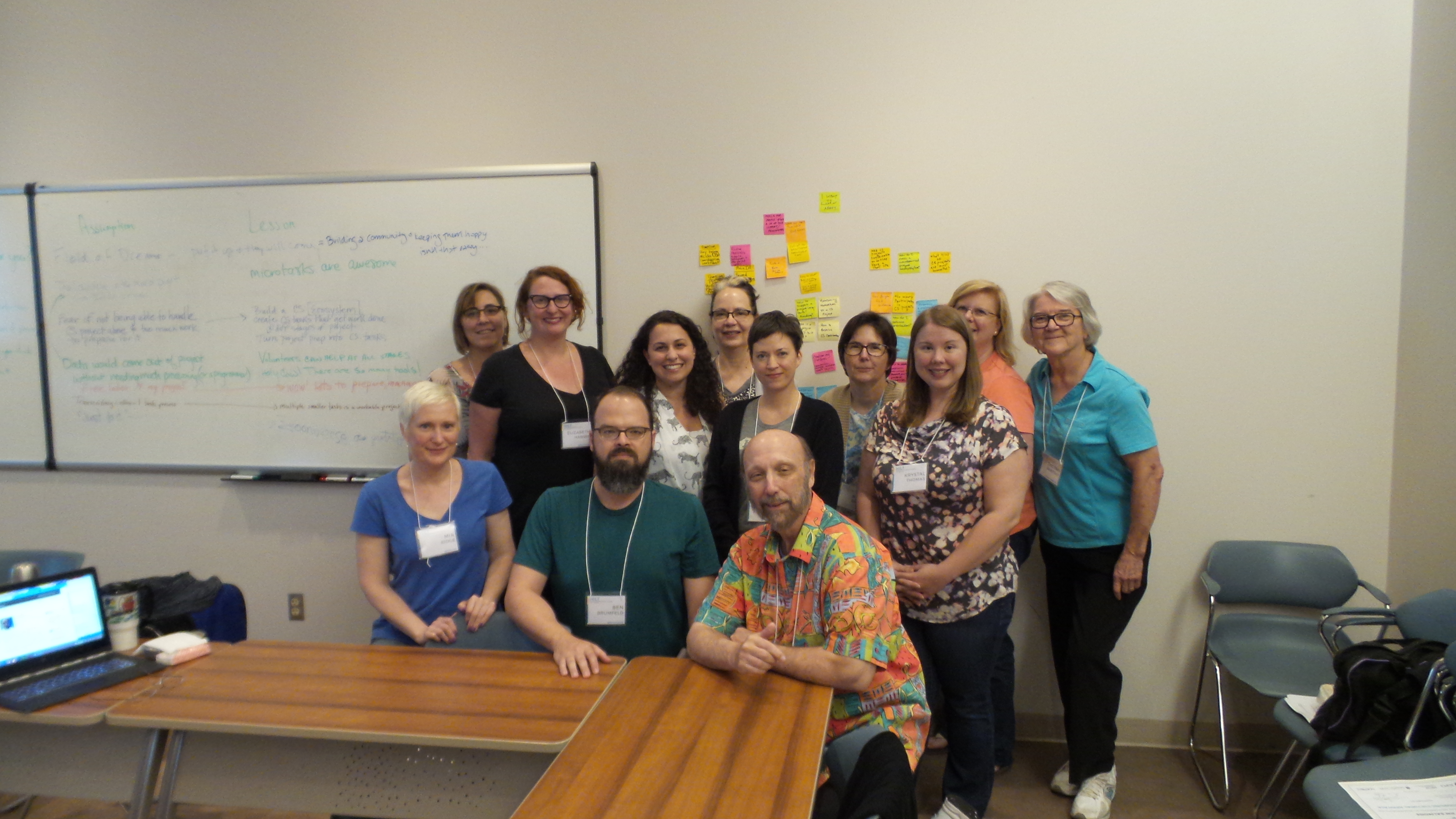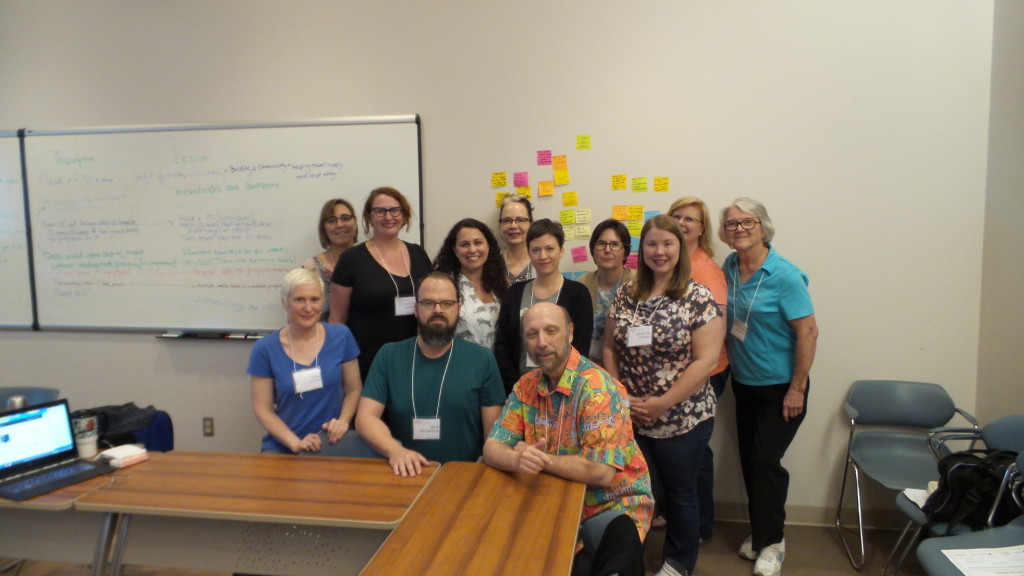Resources for the course on Crowdsourcing Cultural Heritage at HILT 2015 I'm teaching with Ben Brumfield .
Course Google Doc for collaborative note-taking, links, etc.
Flickr Group for HILT 2015 Crowdsourcing photos
Mia's storify of the week and the class presentation for the HILT Show and Tell .
Projects made in the class
Well done @cmderose_wisc @nebrown63 @ElizHansen @ESPaul @vac11 @kmthomas06 @WendyJ1226 @HistorianOnFire @Jim_Salmons @TimlynnBabitsky + Nancy!
Monday: overview, speed dating
HILT Crowdsourcing Slides and Exercises for Monday
Session 2 : links to find a project you love! For non-English language projects, try Crowdsourcing the world's heritage .
Prompts for thinking about projects:
How clear was the purpose of the site? How well was it reflected in the 'call to action' and other text?
How easy was it to get started?
Were the steps to complete the task clear?
How enjoyable was the task?
Did the reward (if any) feel appropriate?
Looking at the site overall, does the project appear to be effective?
What is the input content? What is the output content?
What validation methods appear to have been used?
Who is the probable audience and what motivates them to participate?
How does the project let participants know they're making a difference?
Does the site support communication between participants?
How was the site marketed to potential participants?
Did the site anticipate your questions about the tasks?
http://tinyurl.com/EminentScotsmen
http://tinyurl.com/Graves1845
HILT 2015 Crowdsourcing class Continue reading "HILT Summer School 2015: 'Crowdsourcing Cultural Heritage'"

